Research Infrastructures at the 48th FEBS Congress
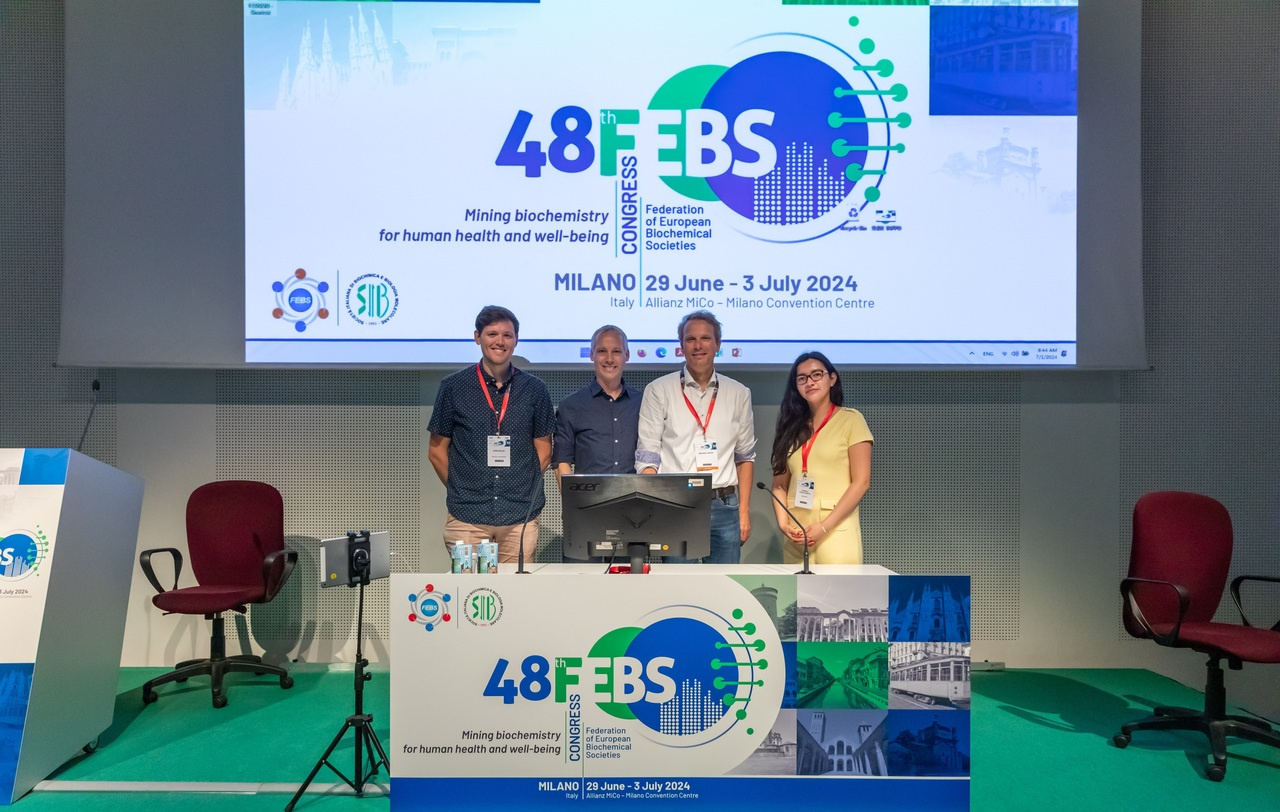
Have you ever considered to develop your own chemical probe for your protein of interest, but you did not have the necessary compound collections available? Have you perhaps looked for the latest imaging technology, which was not available at your institute? Or did you wish to study the structure of your protein of interest but lacked access to X-ray crystallography, NMR or cryo-EM facilities? Did you maybe need an in-vivo or in-vitro model to study a specific human disease, but did not have the resources or expertise to develop it?
With the aim to address these questions and support scientists to realise their project ideas, research infrastructures in various scientific fields have been established and are supported by public funders.
Four Research Infrastructures presented a special session at the FEBS Congress 2024 in Milan, showcasing the unique opportunities available through research infrastructures for the life science community in Europe, and beyond.
EU-OPENSCREEN (compound screening and medicinal chemistry), Instruct-ERIC (structural biology), Euro-BioImaging (imaging services), and INFRAFRONTIER (human disease modelling), all provide access to advanced technologies and services for life science researchers.
With nodes and facilities across Europe, researchers can utilise the technologies and experience available through these research infrastructures to advance their own research, without the need to purchase sizeable or costly equipment in their own laboratory. Additionally, many services are increasingly available remotely, removing the necessity to travel, saving time and energy.
All four research infrastructures are established as not-for-profit organisations with the aim to remove the bottleneck of accessing necessary technology platforms, expertise and resources, and to support researchers on a collaborative basis – with the promise of sustainability. Each Research Infrastructure is publicly funded allowing researchers anywhere on a sustainable, long-term basis to work with them. Learn more about how these RI can help you by visiting the website of each research infrastructure below:
Each research infrastructure collaborates on several Horizon Europe projects, which provides funding for research into specific thematic areas and development, from cancer research (e.g., canSERV) and infectious disease (e.g., ISIDORe) to developing remote access and data management. Some of these European Commission projects provide funding to access the research infrastructures through thematic open calls. Scientists are invited to apply with their own research proposals that include access to these research infrastructures.
During the special session at FEBS 2024, in addition to introductions from each RI and their partner institutions, technologies and services, the floor was opened up for questions from participants. Fruitful discussions were had on how to access funding via EC-project open calls, how scientific institutions outside Europe could apply to join as an ERIC (European Research Infrastructure Consortium) member, training by RI to researchers, and internship opportunities.
The session was a great opportunity for existing and new users to find out more about the services available to thousands of researchers across the continent and beyond. You can find out more about the RI from their websites.
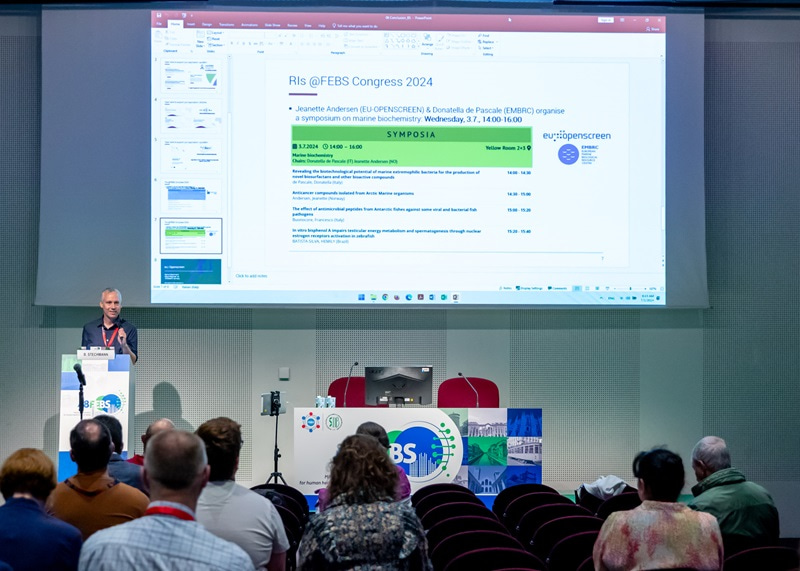
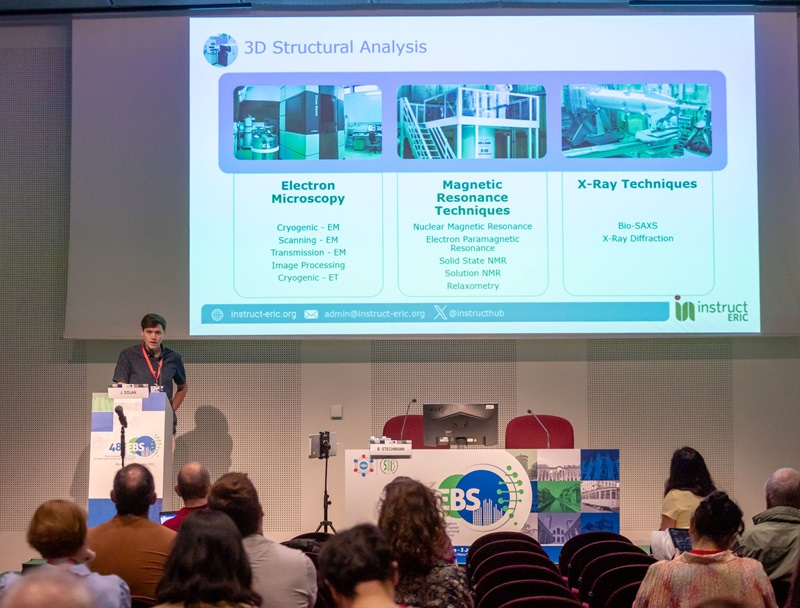
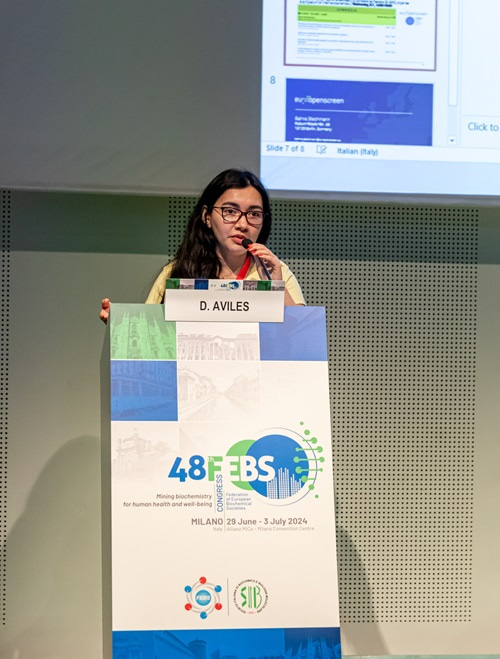
biomedical imaging technologies and image data services.
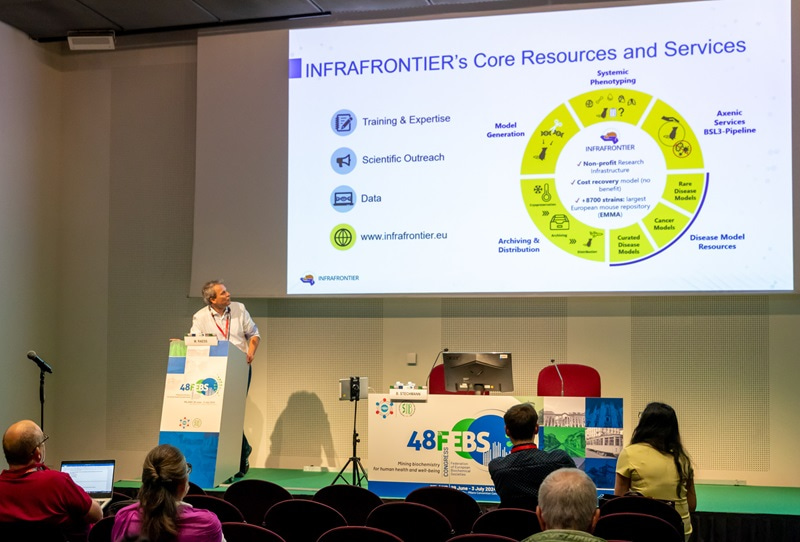
Top image is a photo of the four speakers at the 48th FEBS Congress Special Session "New opportunities for researchers – Research infrastructures in imaging, structural biology, human disease modelling and compound screening".


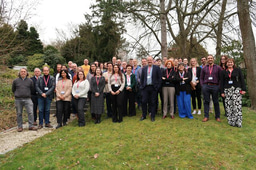
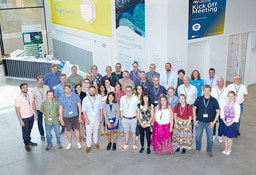

Join the FEBS Network today
Joining the FEBS Network’s molecular life sciences community enables you to access special content on the site, present your profile, 'follow' contributors, 'comment' on and 'like' content, post your own content, and set up a tailored email digest for updates.